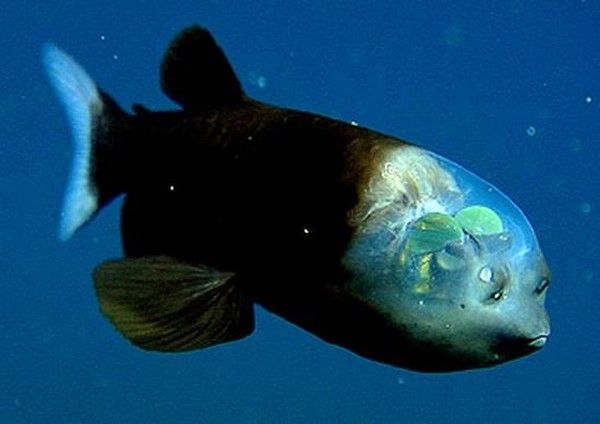|
|
Macropinna Microstoma - Fish With A Transparent Head
|
In the field of optics, transparency (also called pellucidity or diaphaneity) is the physical property of allowing light to pass through a material; translucency (also called translucence or translucidity) only allows light to pass through diffusely. The opposite property is opacity. Transparent materials appear clear, with the overall appearance of one color, or any combination leading up to a brilliant spectrum of every color. Translucent cannot be seen through clearly.
When light encounters a material, it can interact with it in several different ways. These interactions depend on the wavelength of the light and the nature of the material. Light waves interact with an object by some combination of reflection, and transmittance with refraction.
Some materials, such as plate glass and clean water, allow much of the light that falls on them to be transmitted, with little being reflected; such materials are called optically transparent. Many liquids and aqueous solutions are highly transparent. Absence of structural defects (voids, cracks, etc.) and molecular structure of most liquids are mostly responsible for excellent optical transmission.
|
|









